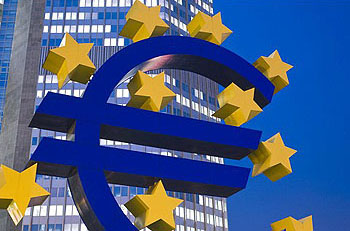As Europe’s financial crisis reaches its climax, Ross Douthat mourns the inexorable rise of the technocrats:
For the inhabitants of Italy and Greece, who have just watched democratically elected governments toppled by pressure from financiers, European Union bureaucrats and foreign heads of state, it evokes the cold reality of 21st-century politics. Democracy may be nice in theory, but in a time of crisis it’s the technocrats who really get to call the shots.
Brad DeLong disagrees. The duly elected leaders of Greece and Italy, he says, chose new prime ministers “because they wanted their countries to borrow money–and the people who they wanted to borrow money from were very  unwilling to lend it to governments headed by Papandreou and Berlusconi but willing to lend it to governments headed by Papademos and Monti.”
unwilling to lend it to governments headed by Papandreou and Berlusconi but willing to lend it to governments headed by Papademos and Monti.”
Unlike Brad, I don’t really have a problem with calling either the EU’s panjandrums or Papademos and Monti technocrats, though it’s true that in the financial world “technocrat” isn’t really a name for someone dedicated to serried columns of facts and figures as much as it’s a name for someone with a particular ideological disposition: pro-creditor, pro-austerity, and anti-inflation. Love it or hate it, it’s the ideology of Germany, it’s the ideology of the ECB, it’s the ideology of the IMF, and it’s the ideology of the dominant political class in the United States.
But here’s something to make Ross feel better: this is hardly the cold reality of only 21st-century politics. The same dynamic that led to the fall of the Greek and Italian governments — pressure from creditors on countries that couldn’t pay their mounting debts — is pretty much the same dynamic that led to the fall of the Iron Curtain. It’s not anything new, it’s not necessarily bad, and it’s not even necessarily anti-democratic. Millions of people in Eastern Europe live in more democracy today than they did in 1989 thanks to pressure from creditors on their governments to pay their bills.
I’m not happy with the way financial technocrats are handling Europe’s current mess, but whether they’re ultimately good or bad for democracy is too early to say. After all, Berlusconi-style corporatists aren’t exactly tribunes of the people either once you scratch an inch below their glad-handing surfaces, nor is the toxic combination of civil servants and the rich that’s ruled Greece for the past couple of decades. I wouldn’t sound the death knell for European democracy quite yet.















